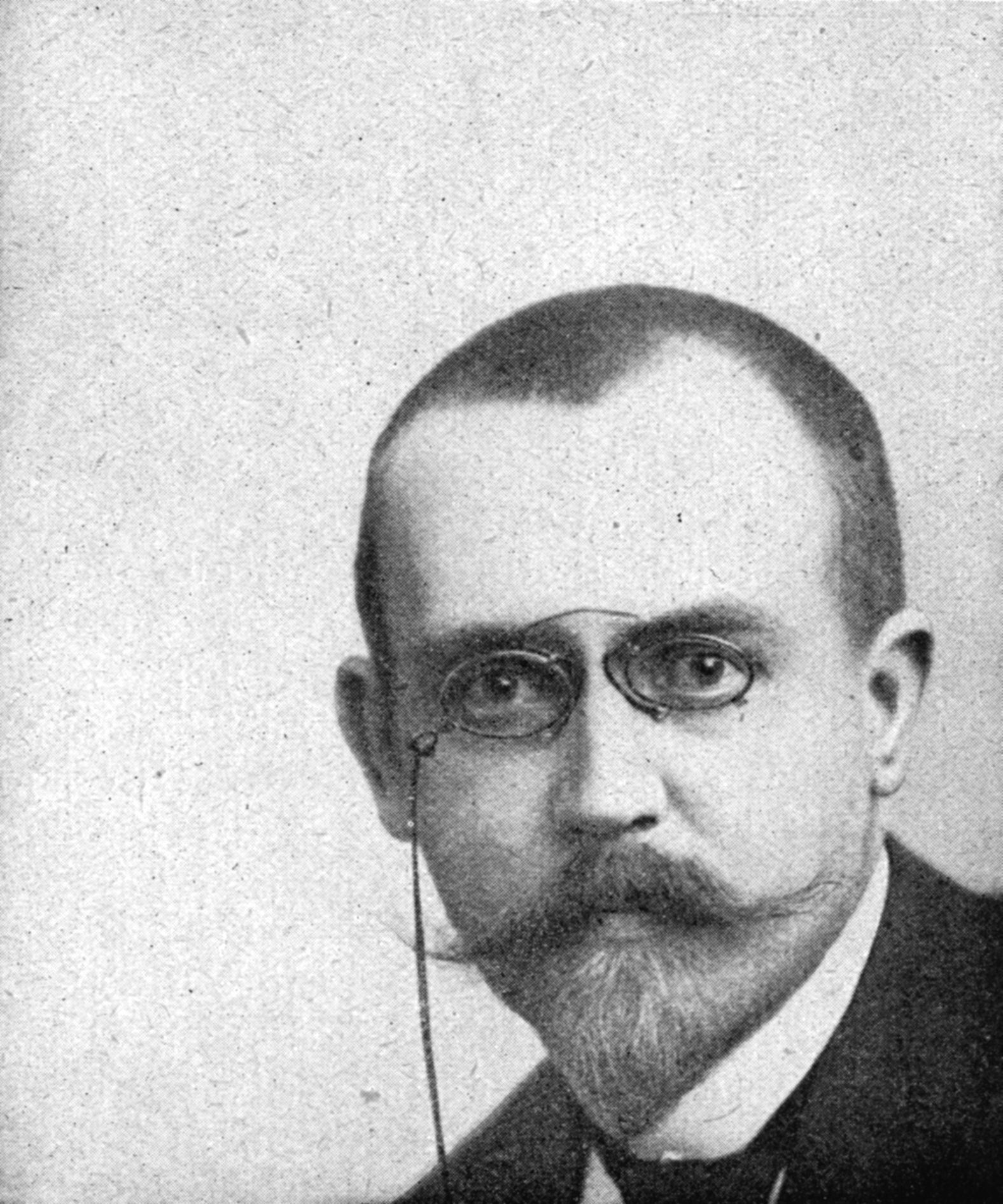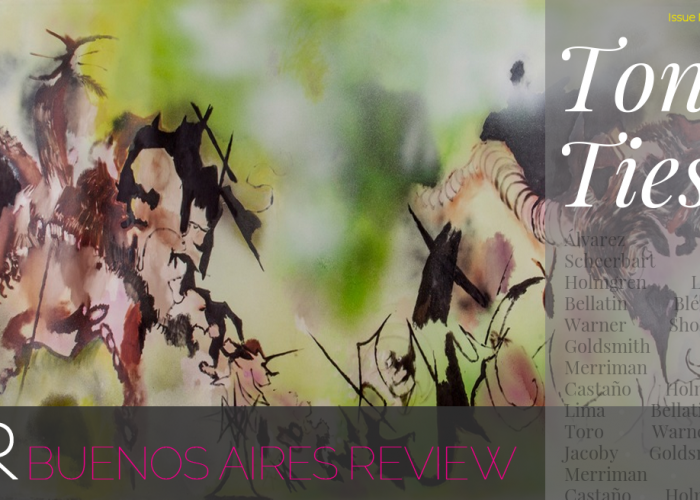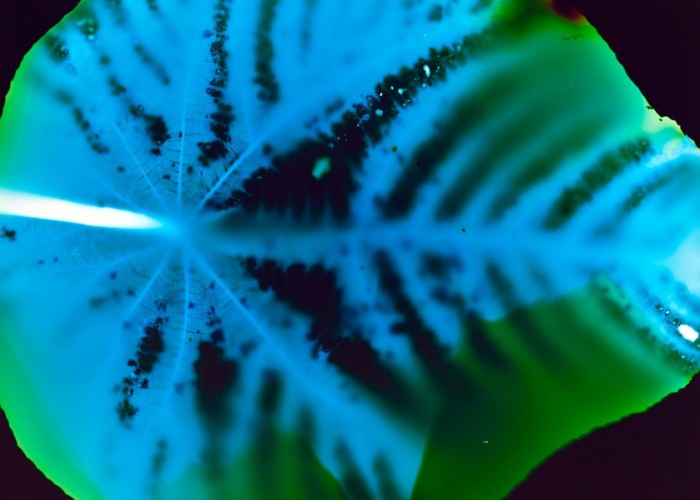The Tall Trees: A Juno Novelette
Paul Scheerbart
translated by Joel Morris
The tall trees groped more and more intensely in the air with their long branch arms and could not calm themselves down; they wanted to know for certain what they once were, back when they did not yet have branches.
The asteroid Juno was a thick round disc. It resembled an earthly pancake. The diameter of this pancake measured no more than 200 kilometers; it was at most five kilometers thick, but it was only that thick in the middle—towards the edges it became thinner and thinner.
The only inhabitants of Juno were immensely tall tree creatures, whose roots entwined together in the middle of the planet. The trees reached extremely high up into the ether—in the middle nearly a hundred kilometers high—just as much on one side of the pancake as on the other. But towards the edges of the pancake the trees grew smaller, so that when seen from a distance the entire planet gave the impression of being a sphere.
The tree creatures’ branches were not as hard as the branches of trees on Earth. The Junoians were able to move their branch-appendages easily in every direction, as if they were rattlesnakes. Many moveable little snake-limbs protruded from the trunks and in place of leaves and blossoms, the tips of the branches had very complex tactile organs, with which the Junoians perceived an indescribable number of things in the air and ether—even things very far away—so that earthly eyes and ears were not lacking on Juno.
Naturally one did not hear clear sounds whenever the Junoians spoke with one another; if an ear had been present, it would have only heard a quiet crackling beneath the tree bark. Nevertheless, on Juno everyone communicated very quickly and without trouble.
Often enormous balloons would form, whenever the Junoians wanted, in the tree-giants’ upper boughs. They looked like blossoms, and in a few seconds they quickly lifted the bough up high, often many kilometers.
The balloons glowed as though lit inside by an electric light, but the Junoians could not see this glow, since they didn’t have any eyes.
The thinking organs were set in the roots of the tree-giants, and with these thinking organs—which processed indescribably complex tactile impressions—the Junoians constantly reflected on their past. They were firmly convinced that they had once led a completely different life. But as much as they groped, searchingly, in the air, they could not remember that other life.
*
Apart from their tactile organs, in the Junoians’ tree bark were numerous pores that also had the characteristics of organs and resembled earthly animal noses. Most Junoians did not concern themselves with their pore-noses. Only the two tallest Junoians, who could stretch their appendages nearly a hundred kilometers high in the middle of the planet, exercised their pore-noses. And so one day the tall Junoian in the middle said to the one below him on the other side of the planet who also stretched a hundred kilometers high:
“My dear antipode, if I just think about my pore-noses and forget for a moment the organs of touch in the fingertips of my branches, it is as though my ability to remember has been utterly transformed.”
The antipode said that the same thing happened to him.
And there was a crackling under their tree barks.
And the other Junoians marveled at the lively conversation in the middle of the planet.
And then both antipodes in the middle of Juno suddenly sensed an intense smell, one that reminded them of something old—something ancient. They didn’t immediately know what it was, but they spoke to each other more and more intensely until finally one of the antipodes said in his quiet crackle-language—crackling in the bark of his roots and palpable throughout the whole of Juno and for each Junoian—“Antipode, I smell roasting meat in my pore-noses!”
“Me too! Me too!” said the antipode.
And all the Junoians drew their snaking branch arms near to the planet’s middle, so that the planet suddenly took the form of a pair of flower bouquets—a cone up top and down below. The edge of Juno stood empty like a cuff.
“The smell of roasting meat!” resonated through all the tree barks.
And it crackled loudly everywhere.
“What could it possibly mean?” asked the smaller Junoians, who did not live far from the edge and were used to reaching over the edge to the other side of the planet with their snaking appendages.
“The smell of roasting meat!” both antipodes in the middle said once more quite clearly. And the other Junoians opened all of their pore-noses and after a while said again, “The smell of roasting meat!”
Then there ensued such a lively conversation that for hours no one could understand his own words (of course no words were actually “spoken” in the earthly sense). The reminiscences of the Junoians had suddenly taken an entirely new direction. And the entire planet became more and more lively—all of the balloons glowed like colorful flowers so that now both the planet’s cones truly looked like two giant bouquets of flowers.
And finally one of the middle antipodes said in summation: “Indeed, my dear friends, we have finally discovered it: we were once beings who were furnished with a so-called ‘mouth.’ And with this mouth we once ate things that we called ‘roast meat.’ We also know what these roasts were: they were other beings that we roasted with fire! We once used to eat one another!”
A general crackling of “Ohs” and “Ahs” followed this speech, and all of the Junoians bent themselves towards the edges, so that the planet no longer resembled two flower bouquets.
*
The antipodes in the middle jutted high up into the air, entirely alone; the other inhabitants of Juno had withdrawn from them. Then they all heard the voice of the second antipode, who said loudly and clearly, “My dear friends, the story is not so simple. Each tree-giant once represented an entire people. We consist of an indescribable number of smaller, even miniscule beings who at times confronted each other, full of fury and hate. And now and then it came to the smell of roasting meat. But now we see that these little peoples all live together unified in us, and that it no longer means anything to us that our little beings once feuded and at times even ate one another. Now all of these little ones are peacefully unified within us, and we are completely justified in seeing our former life as a little joke.”
After this an entirely new crackling could be heard on Juno, one that sounded like an earthly laughing.
And the Junoians on the edges said, “Our lives were once a little joke. It is utterly regrettable that we have not yet made our present life into a big joke.”
“Oh,” came a resounding from the middle. “That’s something we can make up for.”
And they made up for it in the following way: They recalled their former lives more and more clearly, in which they represented great multitudes of people, and their life back then—with all its savagery and opposition—seemed silly to all of them. And on Juno they could not allay the thought that they had once taken that entire life—with all of its brawling, zeal, and smells of roasting meat—so seriously.
“But do we not also keep taking our present life as tree-giants whose roots are harmoniously entwined too seriously?” A good many Junoians asked this question. And they pointed to a life to come and cautioned everyone to keep what they had experienced good and fixed in their memories, so that later such long periods of searching would not occur again. Times of discord could certainly occur once more, and if so it would be very important that the times of unity remained firmly stuck in their memory. Most of all, they were not to forget the comical in everything.
“But it is also terribly silly that there once used to be so many oppositions within us,” said the Junoians on the edge once again. “Now that all of these oppositions have been amicably unified, we don’t even notice that they once behaved with such hostility toward one another. We can also live so completely within another that the other no longer is an other for us. Our antipodes are so familiar with us. We believe that soon all of us together will be just one single giant collective being.”
“It will not happen so quickly!” the antipodes in the middle said.
“It would be too bad,” a few other Junoians noted, “if we did not make the most of our current, harmonious condition.”
And all the Junoians lived on peacefully as tree-giants, full of reminiscences, and under their barks the crackling rang, often very bright and merry.
[ + bar ]
Primavera – Fall 2013: Tongue Ties
This first quarterly issue of the Buenos Aires Review boasts new literary works from a variety of tongues—French, Galician, German, Portuguese, Russian, and a touch of Hungarian accompany... Read More »
Гиперион [Moscow]
By Marfa Nakrasova
Слово “Гиперион” имеет много значений: и книжка, и поэма, и роман, и дерево, и космический корабль, и титан, и спутник Сатурна. В устах... Read More »
Passages: My Art as an Everything
Natalia Brizuela on Nuno Ramos translated by Andrea Rosenberg
“No sé.” “I don’t know.” That’s the response Tintin and Captain Haddock get from the inhabitants of the Andean country—vaguely... Read More »
Hoag Holmgren
reniform
free-arm comfort of raptor shadows splashing skin with dusk among the dwarf pines shaped by wind eyes carved on the antlertipped spear haft remember the damselfly sifting through mulberry fumes the... Read More »


![Гиперион [Moscow]](http://www.buenosairesreview.org/wp-content/uploads/DSC06622-700x500.jpg)





 sending...
sending...